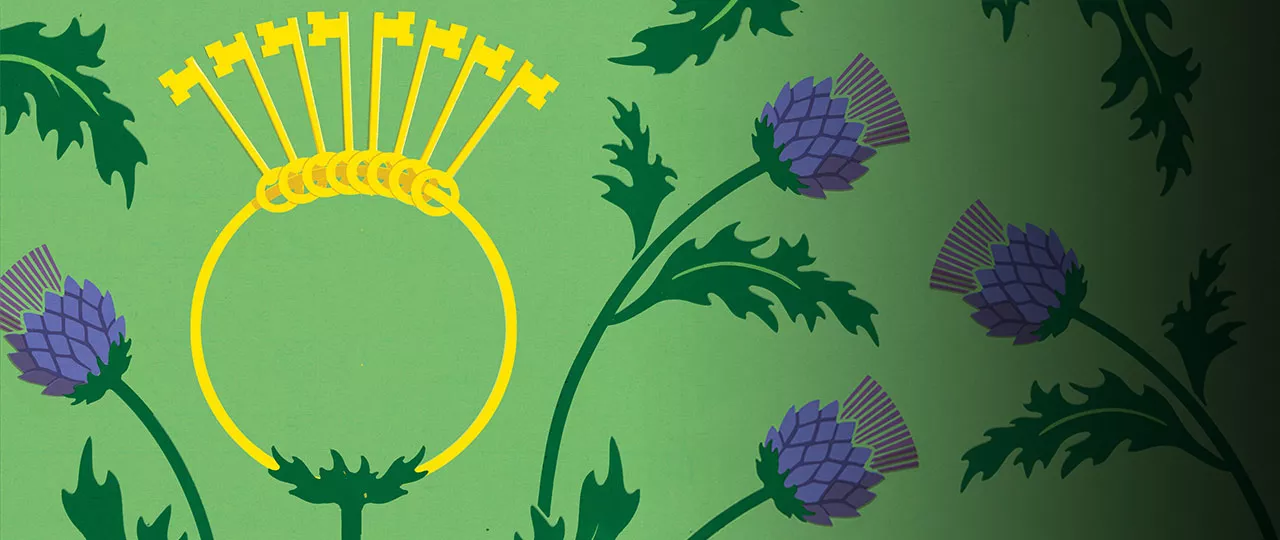
Robert McCulloch
Director – Head of Estates & Farm Agency


Director – Head of Estates & Farm Agency
The political upheaval that has ensued in the immediate aftermath of the vote to leave the EU – one of the most seismic British political events in living memory – has seemingly cast a veil of uncertainty over trading markets of all types.
But for us as agents both facilitating the sale and purchase of estates in Scotland and overseeing the day-to-day management of them on behalf of their owners, Brexit seems like yet another episode in a series of political bombshells that have thrown the orthodoxies of the world in which we operate into turmoil.
For Scots, the EU referendum felt like another waymarker on a journey that began in 2011, when the Scottish National Party won an overall majority to govern Scotland. This paved the way for 2014’s independence referendum, in which victory belonged to the ‘No’ camp. But now, with the Brexit vote contrary to the prevailing desire north of the border, a second independence referendum is a genuine prospect.
Putting aside the impacts of successive elections and referendums, the Scottish government has been drafting legislation designed to create a fairer society – with a particular focus on land ownership and management as set out in the Land Reform (Scotland) Act 2016. This will have considerable implications for Scottish landowners, from the reintroduction of business rates on sporting estates to the appointment of a Scottish Land Commission and a new Community Right to Buy for sustainable development.
For farmers and landowners, Brexit raises further questions. Uncertainty over subsidies – fundamental to many rural businesses – vies with the possibility of reduced red tape and less interference from Europe. Others will be concerned about the reduced political clout of UK farmers compared with their European counterparts.
These continuing doubts are perhaps as damaging as the actual legislative changes – if not more so. As representatives for both current and prospective landowners, we have a responsibility to contribute to the public consultation that may shape any ensuing legislation, keep track of the detail, and provide our clients with practical recommendations and strategic advice to enable them to make informed decisions. But whether we’re talking about land reform, Brexit or Scottish independence, the importance of politicians getting it right cannot be overstated.
In the world of estate sales, the effects of these unfolding events have been fascinating to observe. With the exception of 2009, when the impact of the credit crunch reduced the volume of sales to single figures, there were an average of 20 estate sales a year in Scotland between 2003 and 2012. During that period, about 25% of buyers were based in Scotland, 25% were from overseas and 50% were English.
In 2014 – the year of the independence referendum – sales dropped to just seven from 16 the previous year, reflecting caution among both buyers and sellers in the face of an uncertain political future.
The following year saw a return to ‘normal’ trading conditions, with 19 estates changing hands amid fairly buoyant market conditions. This was despite the continuing evolution of land reform legislation, as well as market factors such as the introduction of the Land and Buildings Transaction Tax and proposed changes to Scottish succession laws.
Between the start of this year and the outcome of the vote on 24 June, 10 Scottish estates had either been sold or placed under offer, indicating a typical appetite for ownership in line with previous years. This suggests that buyers are prepared to accept evolving legislation as part and parcel of land ownership and proceed with estate-buying aspirations.
However, the uncertainty over Brexit, together with the realistic possibility of a second independence referendum, is creating some hesitation in the market. The question now is, what impact will Brexit have on demand for Scottish land? At the time of going to print, it is virtually impossible to predict. But with Strutt & Parker launching Fasque Estate in Kincardineshire and Tillypronie Estate in Aberdeenshire – two of the most significant estate sales in Scotland in recent years – the market is sure to quickly determine the answer.